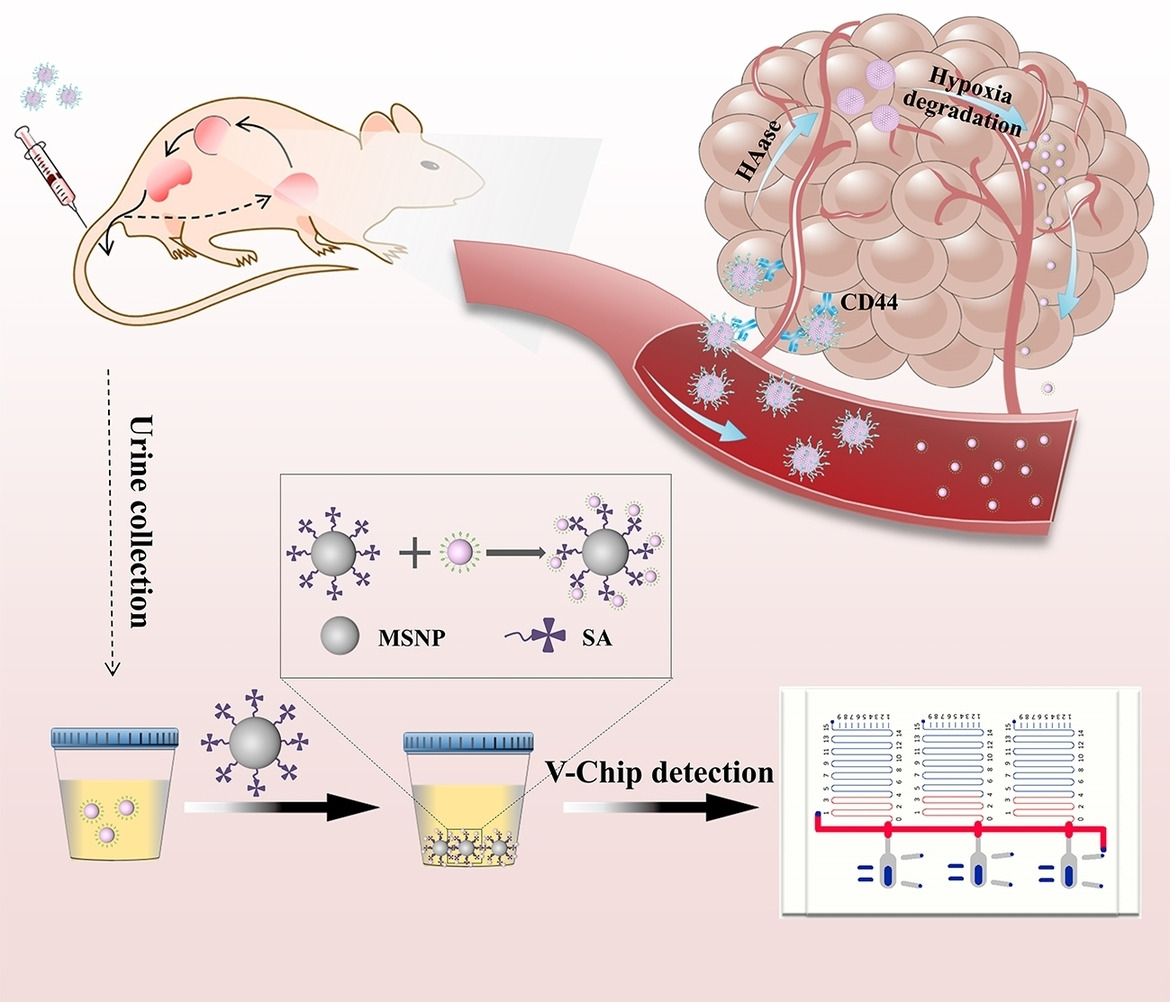
Hypoxia-Responsive Platinum Supernanoparticles for Urinary Microfluidic Monitoring of Tumors
2022/2/22 18:52:37 Views£º1100
Hypoxia-triggered platinum supernanoparticles dissociated into ultrasmall platinum nanoclusters, which could be cleared by the kidney through urine, in response to the tumor microenvironment. After collection of the excreted nanosensors, the disease status was monitored visually and quantitatively by using a microfluidic chip.
Cancer has become a leading cause of morbidity and mortality, and there is an increasing need for versatile tools to enable sensitive, simple and early cancer monitoring. Here, we report platinum supernanoparticles as an exogenous nanosensor which can dissociate into ultrasmall platinum nanoclusters (PtNCs) under tumor-specific hypoxia conditions. The resulting PtNCs can be filtered through the kidney as urinary reporters to be quantified by a companion volumetric bar-chart chip (V-Chip) for point-of-care analysis. The V-Chip signals of triple-negative breast cancer and its lung metastasis mouse model showed a significant increase compared to healthy mice. Our nanosensor can also noninvasively monitor the course of treatment, which is significant for screening tumor recurrence and individualized evaluation of pharmacological and follow-up efficacy. Importantly, this strategy could be adapted for various diseases to form a common diagnostic platform by changing responsive linkers.

- CAIVD WeChat
Subscription Account

- CAIVD WeChat
Channels
China Association of In-vitro Diagnostics
Part of the information in our website is from the internet.
If by any chance it violates your rights, please contact us.

